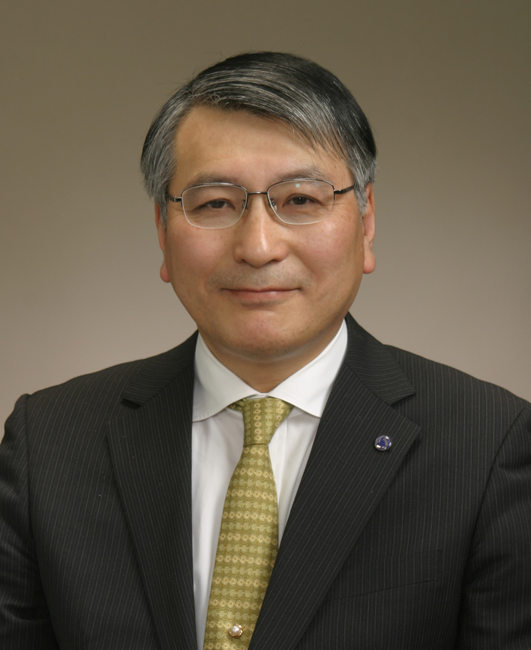 The Establishment and Evolution of ‘New Information Sciences’
The Establishment and Evolution of ‘New Information Sciences’

The Graduate School of Information Sciences (GSIS) of Tohoku University was established in 1993, with the aim of creating “new information science,” a discipline that is expected to improve our society’s affluence and harmony. GSIS began with three departments: the Computer and Mathematical Sciences Department, the System Information Sciences Department, and the Human-Social Information Sciences Department. In 2003, a fourth department, the Applied Information Sciences Department, was established to meet increasing demand for interdisciplinary research to solve various complex problems in the real world. One of our goals has been to create a “new information science” with foundations in many individual fields.
GSIS, thanks to its long history and broad activity of research in the field of information and communications at Tohoku University, has a variety of specializations from sciences to arts and from fundamentals to applied areas. We are proud not only of our researchers’ excellent academic achievements in individual fields, but also of our graduates. As of the end of 2014, the total number of graduates from GSIS is 3,479 – 695 with PhDs and 2,784 with master’s degrees, and these people are now active in various fields, all over the world.
Ever since GSIS was established, we have pursued the world’s highest-level advanced research in fields such as mathematical science, theoretical computer science, information robotics and information communications. Our mission of education and research encompasses not only these information-technology fields, but also humanities and social science. We have merged these disciplines to create “new information science,” one of the distinctive features of GSIS’s education and research. Our goal is to offer opportunities for interdisciplinary research and education in both the fundamentals and the frontiers of information science. Therefore, we offer a broad spectrum of subjects, ranging from computer science to human and social sciences.
To promote such novel interdisciplinary research activities, we incubate intensive research projects and also structure research centers and units. The intensive research project “Interdisciplinary Information Science Toward a Secure and Safe Society” (2005-2009) focused on rescue robotics, aiming to reduce damage from large-scale disasters. This project has been expanded into a large-scale project to address several social requirements, including the development of the Quince robot, which was used in the investigation of the Fukushima Daiichi nuclear power plant after the Great East Japan Earthquake and nuclear disaster. Another intensive research project, “Bioinformatics — Analysis of Big Biological Information” (2010-2013), has been made into a core project at Tohoku Medical Megabank to develop a next-generation IT medical system.
Yet another major project, “Nowcast and Forecast of Road Traffic Flow Based on Multi-Modal Sensor Fusion and Simulation” (2011-2014), made important contributions to the analysis of large amounts of data related to the Tohoku quake, and is widely recognized as an innovative project on real-world applications of big data analysis.
Currently, we are running the intensive research project “Software/Hardware Foundations on Custom Supercomputing to Develop Big-Data Applications,” aimed at finding solutions in real-world applications of big-data analysis.
We also lead the Applied Mathematics Collaborative Forum to organize mathematical applications in a wide range of science and technology fields in order to activate interconnection among mathematicians and researchers in other fields requiring mathematical solutions.
To further cultivate and promote human resources in the IT field, we are running several educational programs, including an international course conducted in English, industry-academia collaborative education, and research assistant employment for doctoral students. These programs support our global-standard human resources development, and we are playing a central role in the Super Global University project at Tohoku University. Additionally, we have begun a state-of-the-art “Information Literacy Education Professional Course” to educate professionals on information literacy to prepare them to address various problems in information ethics and morality.
Development in information sciences is not only the core of IT – it is indispensable in every academic field. The growth and advancement of our society is due to the progress in information and communications technology, which has reached every corner of our lives. We now routinely use IT applications, such as the Internet and smartphones. Therefore, the development of these technologies influences not only the structure of society and the economy but also individual lifestyles. Accordingly, our mission is to promote the evolution of a human-oriented information society, and motivate students to pursue innovation, the creation of new industries, and the construction of social systems in this new era of the global information society.
To complete this mission, GSIS will contribute to the world by pursuing “new information science.” We will continue to broaden the base of research and encourage interactions among various fields, as well as conducting deep research in individual academic fields. This approach will lead to the development of talented graduates with a wide range of viewpoints and abilities to solve various pressing problems in our global society.
We will endeavor to achieve our ultimate goal — a society in which everyone can live happily and comfortably, by reaping the benefits of information technology.
Takeshi Tokuyama
Dean of the Graduate School of Information Sciences